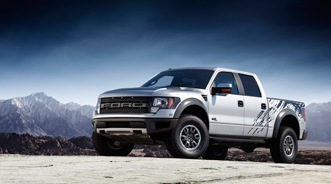ACSI Predicts Domestics Could Be Forced to Ramp Up Incentives to Compete with Japanese

By subscribing, you agree to receive communications from Auto Remarketing and our partners in accordance with our Privacy Policy. We may share your information with select partners and sponsors who may contact you about their products and services. You may unsubscribe at any time.
ANN ARBOR, Mich. –
Although sales for most domestic brands are up, and their Japanese rivals’ recent supply and quality issues have offered the Big 3 “respite in competition” as of late, these domestics could be faced with a double-whammy of hurdles slowing down their recovery, according to the American Customer Satisfaction Index.
In addition to Big 3 brands seeing customer satisfaction come in below the level of import rivals, ACSI suggested that domestics are also faced with a pricing challenge: Honda and Toyota — in the midst of playing catch-up as their production gets back on track following the earthquake — are now doling out hefty incentives.
“Price discounting by Japanese automakers will make competition very difficult for all others, especially since industry sales remain weak,” stated ACSI founder Claes Fornell.
“It used to be Detroit that was forced to use buyer incentives to compensate for its weaker customer satisfaction,” Fornell added. “Now, with the Japanese using discounts in addition to their strong customer satisfaction, Detroit will probably have no choice but to respond in kind, putting more pressure on profit margins as a result.”
Fornell further noted: “Production challenges for Japanese automakers provided an opportunity for Detroit to increase both market share and earnings, but declining customer satisfaction will make it difficult to sustain these gains as the Japanese companies begin to recover.”
The overall national ACSI for all companies (auto and otherwise) for the second quarter was 75.1 (out of 100), up 0.1 percentage point from the previous quarter.
Subscribe to Auto Remarketing to stay informed and stay ahead.
By subscribing, you agree to receive communications from Auto Remarketing and our partners in accordance with our Privacy Policy. We may share your information with select partners and sponsors who may contact you about their products and services. You may unsubscribe at any time.
For automakers, the average ASCI score was 83, up from 82 a year ago.
At the top of the customer satisfaction rankings is a three-way tie between Cadillac, Lexus and Toyota, each of which scored an 87.
Although the GM luxury brand is tied atop the list and improved its score by 1 percentage point, the Big 3 was alone at the top a year ago. Lincoln was No. 1 with a score of 89 in 2010, with Buick in second at 88.
This year, improvements for Toyota and Lexus — which faced significant quality issues in 2010 — vaulted those brands to the top of the list.
Following Cadillac, Lexus and Toyota are Lincoln and Mercedes-Benz in a tie for fourth, as each scored 86. Buick is in a tie for sixth with Honda (85).
Ford, Nissan and Volkswagen are tied at No. 10, each receiving scores of 84.
These scores represent all-time highs for both Ford and Nissan.
Interestingly enough, BMW — which tied for third a year ago with a score of 86 — saw its score decline to 83, which is the lowest grade it has received in 14 years.
At the bottom of the list were three Chrysler nameplates and Mazda.
The Chrysler division was ranked the lowest as its score fell from 80 to 76. Jeep improved from 77 to 79, and Dodge moved ahead from 78 to 79, but it wasn’t enough to keep these brands from the bottom of the list.
Mazda also received a 79, having scored 80 the prior year.
On a manufacturer level, Ford topped the Big 3 at 85. GM came in second (84), and Chrysler was third (78). The latter OEM has “the most precarious position with regard to both domestic and international competition,” ASCI indicated.
ASCI provided the following chart of brand scores:



